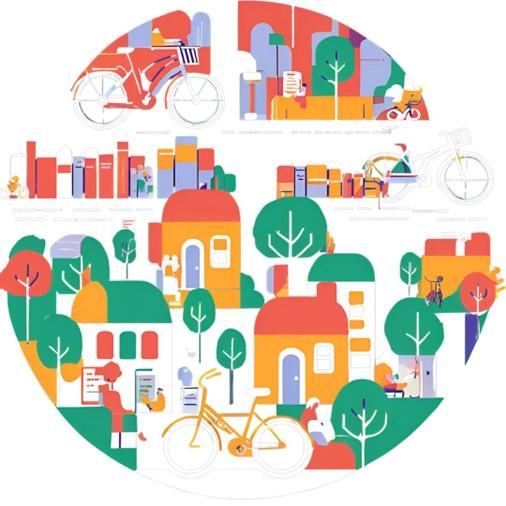Warsaw introduce the Sustainable Resource Sharing Platform
Introducing: The WawaShare: An innovative sharing platform for sustainable development in Warsaw
The capital of Poland is developing an innovative sharing system based on the idea of resource exchange between residents. Thanks to the new project, citizens can share properties, vehicles, tools, or skills without transferring ownership rights. This approach aims not only to achieve cost savings but also to build a local community, improve the quality of life, and promote sustainable urban development.
One of the key elements of this system is the WawaShare platform, which promotes sharing economy and circular economy projects. Residents can take part in these initiatives, benefit from them, and propose their own ideas. Examples of such projects include food-sharing stations, digital libraries, and shared office spaces. The city actively supports the development of these initiatives by offering coworking spaces for startups at preferential rates and encouraging residents to submit their ideas through the civic budget.
Thanks to projects like book crossing shelves or bottle deposit machines, residents can participate in book exchanges and actively engage in eco-friendly plastic disposal. Additionally, initiatives such as the Tup Tup Tup portal for preschool teachers and VOD Warsaw platform support the development of knowledge resources and provide access to online culture, which serves as an added benefit in building the local community.
The city is also investing in increasing residents' digital competencies, enabling them to fully utilize new technologies that facilitate resource sharing. Projects like self-service bike repair stations or three-wheel bike rentals make daily life easier, promoting mobility and access to shared resources. Collaboration with universities and businesses further supports innovation and the development of new technologies that improve the quality of life in the city.
Investments in eco-friendly infrastructure, such as the Rain Garden or solar-powered benches, show how the city combines pro-environmental efforts with residents' needs, creating spaces that not only serve the community but also support sustainable resource use.
The sharing system in Warsaw, developed through projects like WawaShare, aligns perfectly with the idea of sustainable development promoted by the FEEL project. Through collaboration between residents, local businesses, and institutions, the city is becoming more resource-efficient while simultaneously improving the quality of life. Warsaw demonstrates that an innovative approach to sharing resources can be key to building a modern, responsible urban community focused on the future.
Text sources:

